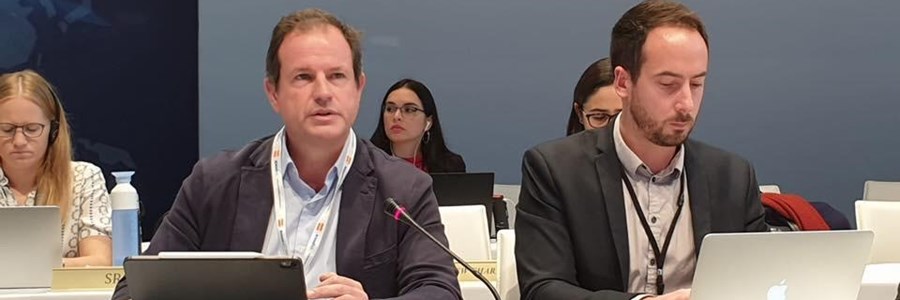EU fishing industry disappointed by ICCAT’s decisions

Europêche represented the European fishing fleet at the 27th ordinary meeting of the International Commission for the Conservation of Atlantic Tunas (ICCAT) which just ended yesterday following a week of intensive negotiations via video conference.
Despite the numerous calls from the EU on all countries to take proportional effort and responsibility towards the good management and full recovery of bigeye tuna, some countries[1] have been increasing catches of tropical tuna stocks in the last decade, in stark contrast with the catch reductions for the EU fleet. After long debates, ICCAT parties decided to set a TAC of 62,000 tonnes for bigeye tuna, a roll-over of the TAC of 110,000 tonnes for yellowfin, as well as a period of closure of fishing on FADs[2] being reduced from 3 months to 72 days over the entire area of the Atlantic.
Mr Javier Garat, President of Europêche, declared: “An increase in the bigeye tuna TAC to 75,000 tonnes was possible and within the limits set by scientific recommendations. This would have particularly benefited some developing coastal countries and, as such, it was a missed opportunity. Europêche also regrets the continuation of the FAD closure, although slightly reduced, given its excessive socio-economic impact. Nevertheless, European tuna fishing vessels will continue to follow and respect ICCAT’s recommendations”.
Concerning the North Atlantic albacore stock, the sector criticises the unjustified introduction of a precautionary approach much stricter than usual for a stock that is in healthy conditions. In addition, the stock will remain underexploited given the absence of a revision of the management objectives which will be addressed next year by the ICCAT’s scientific committee. "Regrettably, our fishermen have not stopped tightening their belts on their national quota since 2016 due to a lack of timely legislative action" indicates Javier Garat.
Finally, the shortfin mako shark has been the subject of long debates leading to a retention ban for the year 2022 and 2023, pending an assessment by the scientific committee on the possible retention of already dead specimens. The retention on board of mako sharks that arrive dead to the vessel was defended by the European Union and the sector. "The president of ICCAT’s scientific committee already specified in 2019 that discarding dead fish does not bring any conservation value to the rebuilding of the stock. Besides, it’s a waste of food, prevents the collection of scientific data and does not recognise the efforts made by EU fishermen who have reduced their catches by almost 40% in the last few years" denounces Javier Garat.
Europêche once again criticises the opposition and veto of certain Asian countries to introduce the obligation to provide more data to scientists and to land the fins naturally attached to the bodies, an obligation already applied in the EU. Javier Garat concluded: “ICCAT should be categorical on this point, “no data, no fishing”.
ENDS
Press contacts:
Daniel Voces, Managing Director of Europêche: +32 2 230 48 48 daniel.voces@europeche.org
[1] For instance, Senegal, China, Korea and Brazil.
[2] Fishing Aggregated devices used in the purse-seine fishery.
Sources: Europêche
Tags: iccat, TAC, Fishing Opportunities, fads, Bigeye tuna, yellowfin tuna, Atlantic, albacore, eu, asia, shortfin mako shark, asia, fins attached